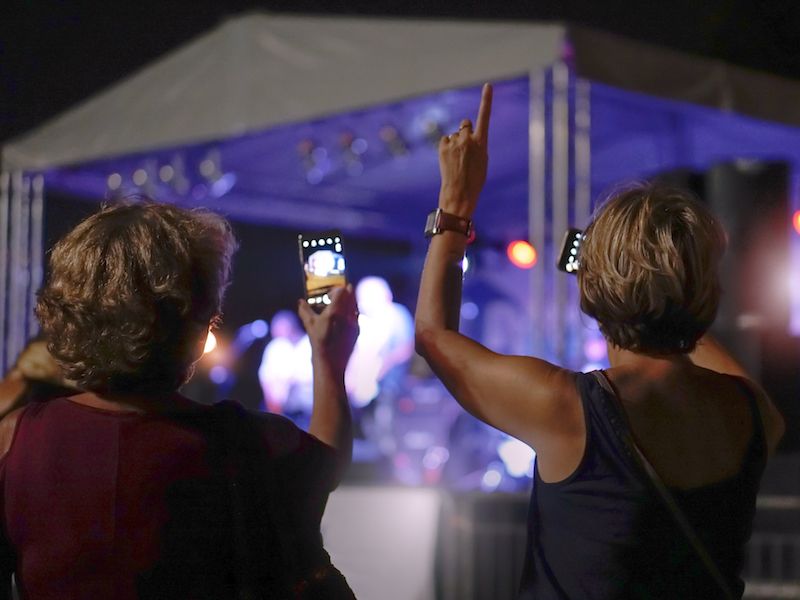
We’ve been looking forward to summer activities all year: going to the beach, relaxing by the pool, and injured hearing? That’s right, summer has many unseen hazards to your ears, either from loud sounds or the environmental scenarios you might find yourself in. Any noises above 80 decibels could injure your ears, while enduring hearing loss can take hold in pools or other bodies of water. You have to take preventative measures and be mindful of your environment so that you can protect your hearing this summer. Here are six of the summer’s concealed hearing hazards.
When You go to Concerts, Put on Ear Protection
Summer is concert time, but even if you’re in a venue, you still need to take care of your ears. Concerts can reach that are over 90 decibels, even at outside shows, which is inside of the danger zone of hearing loss. So whether you’re going to outside or inside concerts, it’s a good idea to wear earplugs. You can still hear the sounds with earplugs in it’s just dampened a little. If you’re bringing young kids to a show, consider buying them a heavy duty set of earmuffs because children have more sensitive hearing than adults.
Fireworks Are More Than Just Loud
Honestly, there are a lot of reasons to avoid fireworks in the summer. It’s not just the 4th of July shows that are professional that can damage your ears, we mean the backyard fireworks which every summer season cause many of incidents. Home fireworks get to decibel levels of nearly 155 which can damage your ears along with causing hand injuries, loss of sight and home fires. This year, on the 4yh of July, enjoy the fireworks from a little further away and leave the fireworks to the professionals.
Lawnmowers Can Bring About Loss of Hearing
If you love to take care of your yard, your edger, trimmer, and mower are your best friends. But that muffled feeling in your ears is an indication that your ears have been damaged. That’s because the lawn tools, which are constantly loud, have a slow and steady impact on your hearing. If you’ve ever noticed landscapers, you probably have noticed them using hearing protection, next time you do yard work with loud power equipment, you need to take a hint from them and use earmuffs or earplugs.
Hears How to Protect Your Hearing When You Take a Swim
Huge numbers of people suffer from swimmer’s ear each summer, which occurs when the ear canal traps water that has lots of bacteria. Swelling and painful earaches are the result when the ear gets infected by the bacteria. These bacteria are usually found in rivers and lakes but sometimes also live in hot tubs and pools if the water is not properly managed. But if you have your ears treated by a hearing expert you will probably be fine, and no irreversible loss of hearing will occur. To protect against swimmer’s ear, however, you will want to wear specialized swimming earplugs in the pool and have your pool water tested to make certain the chemical balance is ok.
Boats and Other Water Sports
Summer is a taste of freedom for those individuals who enjoy being in a boat on the water, smelling the fresh lake breeze or the salty air of the ocean. But, jet ski and boat engines can be noisy,we’re talking over 100 decibels. Continual subjection to that kind of noise for about 15 minutes can cause irreversible hearing damage. In this situation also, using a set of disposable foam earplugs is a smart idea.
Your Hearing Can be Damaged by Car Races
It doesn’t matter what type of auto racing you enjoy, stock cars, midgets, motorcycles, drag racing, Formula 1. If you go to many auto-races this year, they all present a danger. 120 dB is well within the danger zone for hearing loss and quite a few races go well above this. Earplugs are your best friends at these races, while your kids should probably wear the earmuffs we mentioned earlier. Otherwise, you might not be able to enjoy the sound of those engines as you get older.
